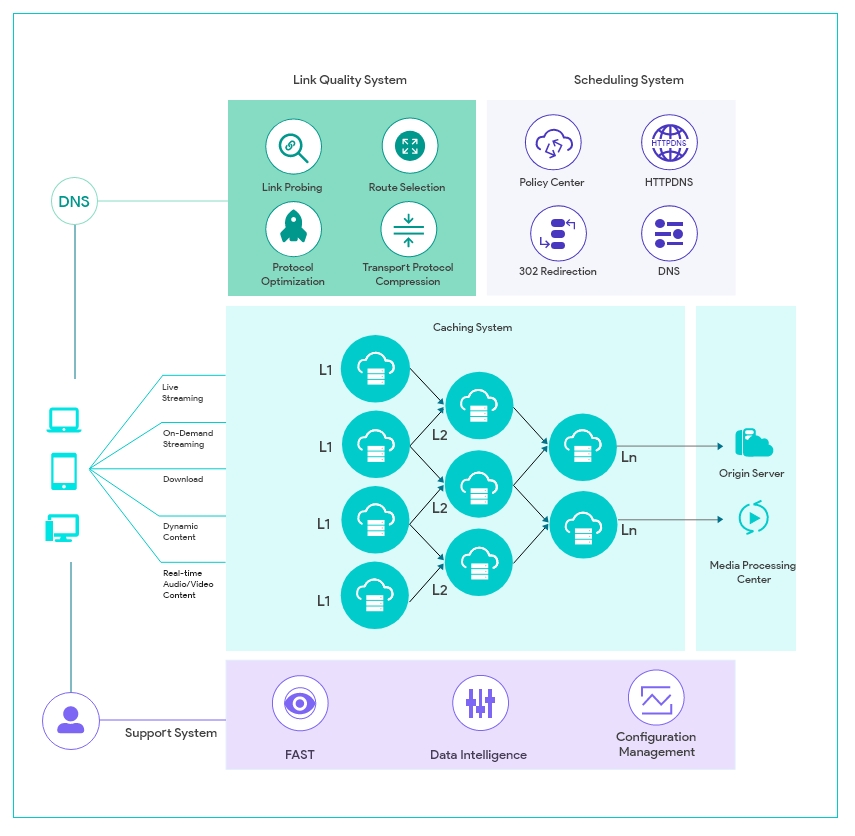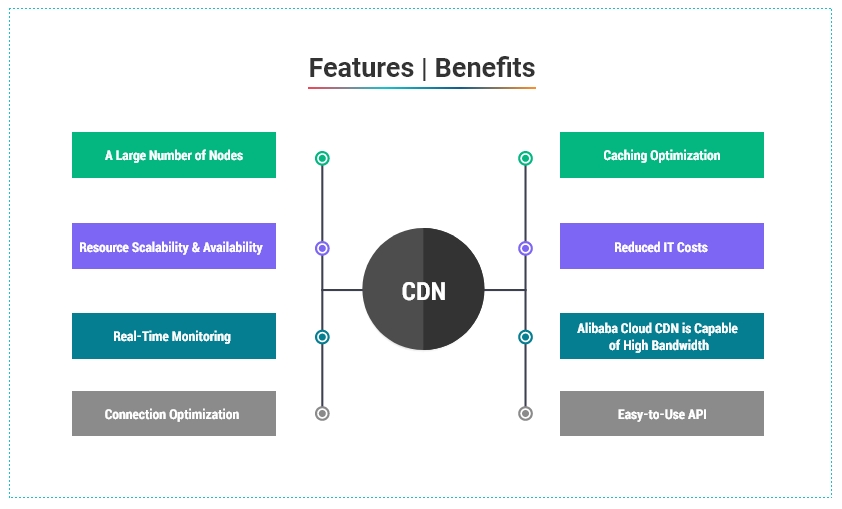By Rupal Shirpurkar, Business Head (Cloud BU – APAC) of Click2Cloud Inc. and Alibaba Cloud MVP
Alibaba Cloud CDN consists of nodes that are distributed globally. Alibaba Cloud CDN prevents congestion on the network by reducing the load on origin servers. Alibaba Cloud CDN can accelerate content delivery for websites in a variety of regions or scenarios.
Files can be cached globally using Alibaba Cloud CDN. It is possible to retrieve resources directly from edge nodes rather than origin servers. This way, content can be delivered faster, and origin servers are less stressed. Several edge nodes support IPv6.
Content Delivery Network (CDN) accelerates content delivery. Alibaba Cloud CDN reduces the physical distance between the server and the user to minimize delays while loading web content. Users worldwide can view the same high-quality content without slowing down the loading speed. Your website will load faster if you use Alibaba Cloud CDN.
Here's an example of how CDN works. Think about a situation where you have users worldwide accessing a server down on a website. People are trying to access the website while the server is down from different locations, such as Hong Kong, Beijing, and Singapore. All of them access a website hosted in the same location. For those users, the website runs slower based on how far their location is from the server. CDN can remedy this situation.
This speed is increased by reducing the distance between the user and the content. Alibaba Cloud CDN endpoints are placed as widely around the world as possible. Scheduling, links quality, caching, and support systems are all part of Alibaba Cloud CDN.

Fig 1: A diagram of Alibaba Cloud CDN's architecture
Alibaba Cloud CDN can separate the acceleration of static and dynamic content. Some of the benefits are listed below:

Fig 2: Advantages of Alibaba Cloud CDN
After finishing this article, you should have an understanding of Alibaba Cloud CDN and how it works. If you use Alibaba Cloud Content Delivery Network (CDN), your web content will be scalable, secure, and smooth, which will reduce your IT costs. You can learn more about Alibaba Cloud CDN by clicking one of the landing page links throughout the article.
Cloud Networking: A Global Cloud Network for Distributed Business System
Alibaba Cloud Security Services: What Is It and How Does It Work?

107 posts | 10 followers
FollowJDP - November 19, 2021
Apache Flink Community China - April 23, 2020
Alibaba Clouder - November 22, 2018
Alibaba Clouder - April 25, 2021
Alibaba Clouder - March 18, 2021
Alibaba Clouder - July 29, 2020

107 posts | 10 followers
Follow Content Delivery Solution
Content Delivery Solution
Save egress traffic cost. Eliminate all complexity in managing storage cost.
Learn More Networking Overview
Networking Overview
Connect your business globally with our stable network anytime anywhere.
Learn More Edge Security Acceleration (Original DCDN)
Edge Security Acceleration (Original DCDN)
Edge Security Acceleration (ESA) provides capabilities for edge acceleration, edge security, and edge computing. ESA adopts an easy-to-use interactive design and accelerates and protects websites, applications, and APIs to improve the performance and experience of access to web applications.
Learn More Secure Content Delivery Solution
Secure Content Delivery Solution
Accelerate static and dynamic web content in a fast, reliable, and safe way using Secure DCDN (Dynamic Route for CDN)
Learn MoreMore Posts by Rupal_Click2Cloud